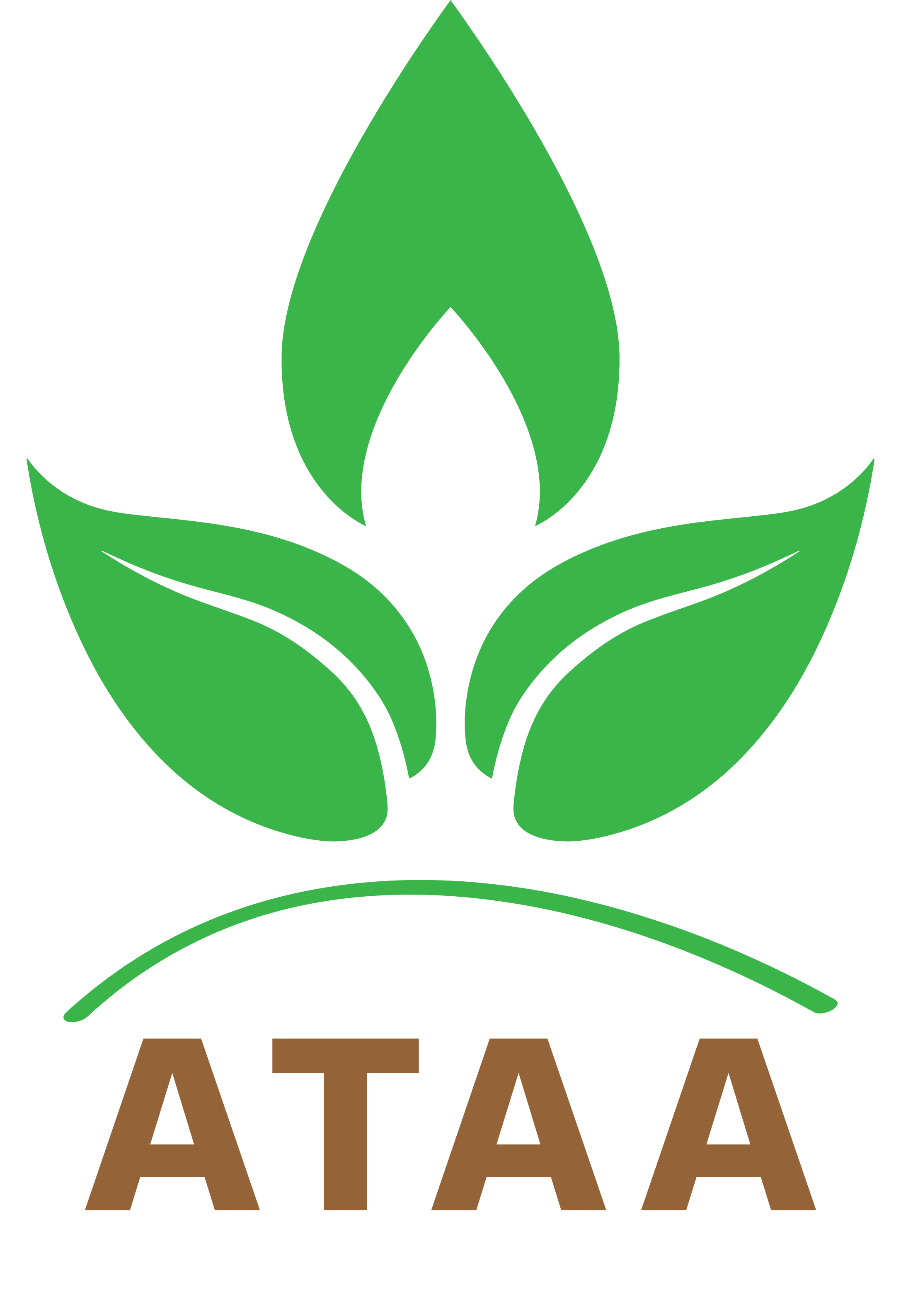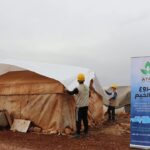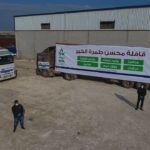Ataa Association for Humanitarian Relief has launched a project to support livestock in Idlib city and the surrounding villages, to provide awareness and guidance in the field of veterinary medical services for livestock keepers, with the support of Qatar Charity, and the project will last for nine month .

The livestock project, according to its official veterinarian, Khaled Al-Kilani, aims to support the steadfastness of livestock keepers and farmers in the face of harsh war conditions to achieve sustainable livelihoods.
Mr. AL-Kilani added that the project will provide support to livestock farmers by providing feed and veterinary health services through the mobile clinic in addition to providing vaccines to immunize livestock from foot-and-mouth disease, smallpox and food poisoning (Enterotoxemia), in addition to ensuring that the livestock obtain their needs of various nutrients (feed, energy, protein, mineral salts and vitamins).
The project contributes to maintaining support for the livestock sector in northern Syria and recovering productive assets. It will also enhance the general health of livestock to produce food from milk and meat, which will increase the productivity of the local market, as livestock products are an important source for many poor families in enhancing livelihood and nutrition in this region which is suffering from displacement and poverty.

Mr. Al-Kilani said that the livestock project includes several activities (distributing 500 tons of feed, providing vaccine service to 30,000 animals, providing internal and external parasite control services to 30,000 animals, distributing and installing 10 units for the production of cooking gas from animal dung, in addition to establishing a veterinary laboratory to support veterinarians in diagnosing infectious diseases and identifying appropriate antibiotics, as this laboratory is considered the first of its kind in northern Syria.
The project official pointed to the challenges and difficulties facing livestock keepers, which are summarized in the high prices of fodder and medicine, the shrinking of pastoral areas as a result of the military battles that extend over large areas of land, and the high costs of breeding as a result of the shrinking of grazing areas and the poor economic conditions and the loss of the Syrian currency of its value, which led to a decrease in the prices of animal products, which caused the rising of price of fodder and its lack of availability in most of the time, the lack of special health technologies to diagnose modern animal diseases, in addition to the lack of adequate shelter for animals, the lack of veterinary services to support livestock such as treatment and vaccination, and the difficulty of providing drinking water.

Mahmoud Jassim Al-Muhaimid, a displaced person from the countryside of Hama to the village of Sunbulta in Idlib countryside, said, “After I was included in the project, I found it much better than financial assistance, because it provides financial and nutritional returns for the family in the long term, in addition to providing full care for sheep by specialists, and instructions on how sheep are raised and dealt with, and explaining the diseases that sheep are exposed to, and the types of vaccinations that must be vaccinated with them.
Mr. Al-Mahmeed added that he feels hopeful to improve his living conditions, by providing the necessary money to buy feed, veterinary care and support his family.
It is noteworthy that Ataa Association last year implemented sustainable development projects to enhance the steadfastness of the beneficiaries. And the livestock sector is considered one of the most important development sectors that contribute to improving food security for vulnerable families in northern Syria. The project benefited more than 5,000 thousand livestock keepers, and the project provided 499 tons of compound feed for livestock, and veterinary services (vaccines, medical drugs and technical consultations) for more than 300,000 animals, and these activities had an effective and significant role in preserving the environment, public health and livestock .
Ataa Association is working on designing several interventions to support and develop the livestock sector, and it will launch another qualitative project during 2021.






